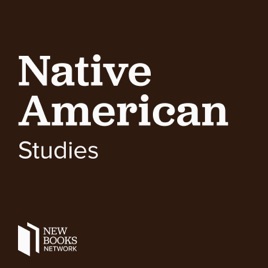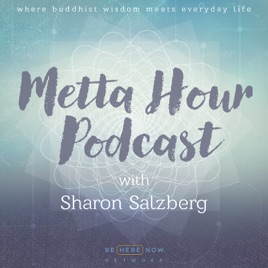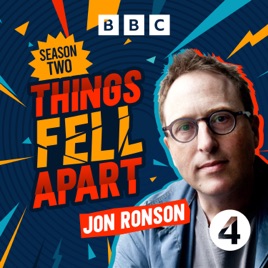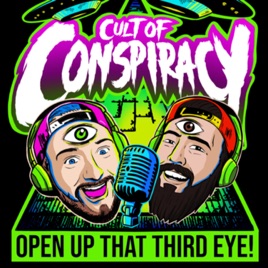
Advertise on podcast: New Books in Native American Studies
Rating
4.3 from
Country
This podcast has
401 episodes
Language
Publisher
Explicit
No
Date created
2011/03/19
Average duration
67 min.
Release period
4 days
Description
Interviews with Scholars of Native America about their New Books Support our show by becoming a premium member! https://newbooksnetwork.supportingcast.fm/native-american-studies
Social media
Check New Books in Native American Studies social media presence
Podcast episodes
Check latest episodes from New Books in Native American Studies podcast
Sarah Keyes, "American Burial Ground: A New History of the Overland Trail" (U Pennsylvania Press, 2023)
2024/02/25
The Overland Trail into the American West is one of the most culturally recognizable symbols of the American past: white covered wagons traversing the plains, filled with heroic pioneers embodying the nation's manifest destiny. In American Burial Ground: A New History of the Overland Trail (University of Pennsylvania Press, 2023), University of Nevada assistant professor of history Sarah Keyes rewrites that well-worn story. Keyes book focuses on a topic that was at the forefront of the minds of those who traveled the train - death. 6,000 (or perhaps more) people died traveling West during the middle decades of the nineteenth century, and in a nation where death rituals held strong symbolic meaning, the realities of dying on the trail were troubling to westward settlers. By looking at the trail through the lens of death, Keyes also includes other forms of, and institutions central to, western migration, namely Indian Removal and the US Army. American Burial Ground is a fresh look at a topic that many people think they know something about - historians will never look at westward migration the same way again.
Learn more about your ad choices. Visit megaphone.fm/adchoices
Support our show by becoming a premium member! https://newbooksnetwork.supportingcast.fm/native-american-studies
more
Gregory D. Smithers, "Native Southerners: Indigenous History from Origins to Removal" (U Oklahoma Press, 2019)
2024/02/23
In his book, Native Southerners: Indigenous History from Origins to Removal(University of Oklahoma Press, 2019), Dr. Gregory D. Smithers effectively articulates the complex history of Native Southerners. Smithers conveys the history of Native Southerners through numerous historical eras while properly reinterpreting popular misconceptions about the past in a way that is compelling and easy to understand. Smithers expresses the rich and complex history of Native Southerners as it was while exposing the reality of settler colonialism and U.S. removal policies. As shown throughout the book, Native Southerners were constantly adapting to a changing world. But ultimately Native Southerners flourished, leading Smither to state, “My, how the architects of removal and assimilation failed.”
Gregory D. Smithers is an American historian with a particular interest in the rich history of the Cherokee people, Indigenous history in the Southeast, and environmental history. He received his Ph.D. in History from the University of California, Davis. He has taught in California, Hawaii, Scotland, and Ohio. He currently lives in Richmond, Virginia, where he is a professor of American history and Eminent Scholar in the College of Humanities and Sciences at Virginia Commonwealth University.
Colin Mustful has an M.A. in history from Minnesota State University, Mankato, and is currently a candidate for an M.F.A. in Creative Writing from Augsburg University. You can learn more about his work at his website: www.colinmustful.com.
Learn more about your ad choices. Visit megaphone.fm/adchoices
Support our show by becoming a premium member! https://newbooksnetwork.supportingcast.fm/native-american-studies
more
Emily Legg, "Stories of Our Living Ephemera: Storytelling Methodologies in the Archives of the Cherokee National Seminaries, 1846-1907" (Utah State UP, 2023)
2024/02/20
Stories of Our Living Ephemera: Storytelling Methodologies in the Archives of the Cherokee National Seminaries, 1846-1907 (Utah State University Press, 2023) recovers the history of the Cherokee National Seminaries from scattered archives and colonized research practices by critically weaving together pedagogy and archival artifacts with Cherokee traditional stories and Indigenous worldviews. This unique text adds these voices to writing studies history and presents these stories as models of active rhetorical practices of assimilation resistance in colonized spaces.
Emily Legg turns to the Cherokee medicine wheel and cardinal directions as a Cherokee rhetorical discipline of knowledge making in the archives, an embodied and material practice that steers knowledge through the four cardinal directions around all relations. Going beyond historiography, Legg delineates educational practices that are intertwined with multiple strands of traditional Cherokee stories that privilege Indigenous and matriarchal theoretical lenses. Stories of Our Living Ephemera synthesizes the connections between contemporary and nineteenth-century academic experiences to articulate the ways that colonial institutions and research can be Indigenized by centering Native American sovereignty.
By undoing the erasure of Cherokee literacy and educational practices, Stories of Our Living Ephemera celebrates the importance of storytelling, especially to those who are learning about Indigenous histories and rhetorics. This book is of cultural importance and value to academics interested in composition and pedagogy, the Cherokee Nation, and a general audience seeking to learn about Indigenous rhetorical devices and Cherokee history.
Jen Hoyer is Technical Services and Electronic Resources Librarian at CUNY New York City College of Technology. Jen edits for Partnership Journal and organizes with the TPS Collective. She is co-author of What Primary Sources Teach: Lessons for Every Classroom and The Social Movement Archive.
Learn more about your ad choices. Visit megaphone.fm/adchoices
Support our show by becoming a premium member! https://newbooksnetwork.supportingcast.fm/native-american-studies
more
Matthew C. Ward, "Making the Frontier Man: Violence, White Manhood, and Authority in the Early Western Backcountry" (U Pittsburgh Press, 2023)
2024/02/18
For western colonists in the early American backcountry, disputes often ended in bloodshed and death. Making the Frontier Man: Violence, White Manhood, and Authority in the Early Western Backcountry (University of Pittsburgh Press, 2023) by Dr. Matthew C. Ward examines early life and the origins of lawless behaviour in Pennsylvania, Virginia, Kentucky, and Ohio from 1750 to 1815. It provides a key to understanding why the trans-Appalachian West was prone to violent struggles, especially between white men. Traumatic experiences of the Revolution and the Forty Years War legitimised killing as a means of self-defence—of property, reputation, and rights—transferring power from the county courts to the ordinary citizen. Backcountry men waged war against American Indians in state-sponsored militias as they worked to establish farms and seize property in the West. And white neighbours declared war on each other, often taking extreme measures to resolve petty disputes that ended with infamous family feuds.
Making the Frontier Man focuses on these experiences of western expansion and how they influenced American culture and society, specifically the nature of western manhood, which radically transformed in the North American environment. In search of independence and improvement, the new American man was also destitute, frustrated by the economic and political power of his elite counterparts, and undermined by failure. He was aggressive, misogynistic, racist, and violent, and looked to reclaim his dominance and masculinity by any means necessary.
This interview was conducted by Dr. Miranda Melcher whose forthcoming book focuses on post-conflict military integration, understanding treaty negotiation and implementation in civil war contexts, with qualitative analysis of the Angolan and Mozambican civil wars.
Learn more about your ad choices. Visit megaphone.fm/adchoices
Support our show by becoming a premium member! https://newbooksnetwork.supportingcast.fm/native-american-studies
more
Ian Saxine, "Properties of Empire: Indians, Colonists, and Land Speculators on the New England Frontier" (NYU Press, 2019)
2024/02/16
In Properties of Empire: Indians, Colonists, and Land Speculators on the New England Frontier (NYU Press, 2019), Ian Saxine, Visiting Assistant Professor of History at Bridgewater State University, shows the dynamic relationship between Native and English systems of property on the turbulent edge of Britain’s empire, and how so many colonists came to believe their prosperity depended on acknowledging Indigenous land rights. As absentee land speculators and hardscrabble colonists squabbled over conflicting visions for the frontier, Wabanaki Indians’ unity allowed them to forcefully project their own interpretations of often poorly remembered old land deeds and treaties. The result was the creation of a system of property in Maine that defied English law, and preserved Native power and territory. Eventually, ordinary colonists, dissident speculators, and grasping officials succeeded in undermining and finally destroying this arrangement, a process that took place in councils and courtrooms, in taverns and treaties, and on battlefields.
Properties of Empire challenges assumptions about the relationship between Indigenous and imperial property creation in early America, as well as the fixed nature of Indian “sales” of land, revealing the existence of a prolonged struggle to re-interpret seventeenth-century land transactions and treaties well into the eighteenth century. The ongoing struggle to construct a commonly agreed-upon culture of landownership shaped diplomacy, imperial administration, and matters of colonial law in powerful ways, and its legacy remains with us today.
Ryan Tripp is adjunct history faculty for the College of Online and Continuing Education at Southern New Hampshire University.
Learn more about your ad choices. Visit megaphone.fm/adchoices
Support our show by becoming a premium member! https://newbooksnetwork.supportingcast.fm/native-american-studies
more
Deborah Taffa, "Whiskey Tender: A Memoir" (Harper, 2024)
2024/02/15
Today’s book is: Whiskey Tender: A Memoir (Harper, 2024), by Deborah Jackson Taffa, who was raised to believe that some sacrifices were necessary to achieve a better life. Her grandparents—citizens of the Quechan (Yuma) Nation and Laguna Pueblo tribe—were sent to Indian boarding schools run by white missionaries, while her parents were encouraged to take part in governmental job training off the reservation. Assimilation meant relocation, but as Deborah Jackson Taffa matured into adulthood, she began to question the promise handed down by her elders and by American society: that if she gave up her culture, her land, and her traditions, she would not only be accepted, but would be able to achieve the “American Dream.”
Whiskey Tender traces how a mixed tribe native girl—born on the California Quechan (Yuma) reservation and raised in Navajo territory in New Mexico—comes to her own interpretation of identity, despite her parent’s desires for her to transcend the class and “Indian” status of her birth through education, and despite the Quechan tribe’s particular traditions and beliefs regarding oral and recorded histories. Her childhood memories unspool into meditations on tribal identity, the rampant criminalization of Native men, governmental assimilation policies, the Red Power movement, and the negotiation between belonging and resisting systemic oppression. Pan-Indian, as well as specific tribal histories and myths, blend with stories of a 1970s and 1980s childhood spent on and off the reservation. Deborah Jackson Taffa offers a sharp and thought-provoking historical analysis laced with humor and heart. As she reflects on her past and present—the promise of assimilation and the many betrayals her family has suffered, both personal and historical; trauma passed down through generations—she reminds us of how the cultural narratives of her ancestors have been excluded from the central mythologies and structures of the “melting pot” of America, revealing all that is sacrificed for the promise of acceptance.
Our guest is: Deborah Jackson Taffa, who is a citizen of the Quechan (Yuma) Nation and Laguna Pueblo. She earned her MFA at the Iowa Writers Workshop, and is the Director of the MFA in Creative Writing Program at the Institute of American Indian Arts (IAIA) in Santa Fe, New Mexico. Her writing has appeared in The Rumpus, Boston Review, Los Angeles Review of Books, A Public Space, Salon, the Huffington Post, Prairie Schooner, The Best Travel Writing, and other outlets.
Our host is: Dr. Christina Gessler, the creator of the Academic Life podcast. She holds a PhD in history, which she uses to explore which stories we tell and what happens to those we don’t.
Listeners may also be interested in this playlist:
This discussion of the book A Calm and Normal Heart, with Chelsea T. Hicks
The conversation about the book Night of the Living Rez, with Morgan Talty
Welcome to Academic Life, the podcast for your academic journey—and beyond! Join us to learn from experts inside and outside the academy, and around the world.
Learn more about your ad choices. Visit megaphone.fm/adchoices
Support our show by becoming a premium member! https://newbooksnetwork.supportingcast.fm/native-american-studies
more
Daniel Immerwahr, "How to Hide an Empire: The History of the Greater United States" (FSG, 2019)
2024/02/11
“Is America an Empire?” is a popular question for pundits and historians, likely because it sets off such a provocative debate. All too often, however, people use empire simply because the United States is a hegemon, ignoring the country’s imperial traits to focus simply on its power. Dr. Daniel Immerwahr’s book How to Hide an Empire: The History of the Greater United States (Farrar, Straus and Giroux, 2019) corrects this by explicitly focusing on the country’s territories and territories overseas possessions.
Dr. Immerwahr begins at the country’s founding as apprehension over aggressive westward settlement gave way to enthusiastic land grabs by pioneers such as Daniel Boone. Propelled by an astonishingly high birth rate and immigration, Euroamericans displaced indigenous peoples. In addition to this more familiar narrative, other factors drove territorial expansion. A desperate need for fertilizers led to the annexation of nearly one hundred “guano islands” in the Pacific and Caribbean, followed by the annexation of even more territory following the Spanish-American War in 1898. These new territories, including Puerto Rico, the Philippines, Guam, and others enjoyed an uneasy relationship with the United States: they did not enjoy constitutional protections but nevertheless had a close relationship with what they called the mainland. While the United States backed away from traditional colonialism after 1945, what emerged instead was a “pointillist empire” that depended on bases and new uses of older territory to function.
Zeb Larson is a PhD Candidate in History at The Ohio State University. His research is about the anti-apartheid movement in the United States. To suggest a recent title or to contact him, please send an e-mail to zeb.larson@gmail.com.
Learn more about your ad choices. Visit megaphone.fm/adchoices
Support our show by becoming a premium member! https://newbooksnetwork.supportingcast.fm/native-american-studies
more
Matthew Kruer, "Time of Anarchy: Indigenous Power and the Crisis of Colonialism in Early America" (Harvard UP, 2021)
2024/02/07
A gripping account of the violence and turmoil that engulfed England’s fledgling colonies and the crucial role played by Native Americans in determining the future of North America.
In 1675, eastern North America descended into chaos. Virginia exploded into civil war, as rebel colonists decried the corruption of planter oligarchs and massacred allied Indians. Maryland colonists, gripped by fears that Catholics were conspiring with enemy Indians, rose up against their rulers. Separatist movements and ethnic riots swept through New York and New Jersey. Dissidents in northern Carolina launched a revolution, proclaiming themselves independent of any authority but their own. English America teetered on the edge of anarchy.
Though seemingly distinct, these conflicts were in fact connected through the Susquehannock Indians, a once-mighty nation reduced to a small remnant. Forced to scatter by colonial militia, Susquehannock bands called upon connections with Indigenous nations from the Great Lakes to the Deep South, mobilizing sources of power that colonists could barely perceive, much less understand. Although the Susquehannock nation seemed weak and divided, it exercised influence wildly disproportionate to its size, often tipping settler societies into chaos. Colonial anarchy was intertwined with Indigenous power.
Piecing together Susquehannock strategies from a wide range of archival documents and material evidence, Matthew Kruer shows how one people’s struggle for survival and renewal changed the shape of eastern North America. Susquehannock actions rocked the foundations of the fledging English territories, forcing colonial societies and governments to respond. Time of Anarchy recasts our understanding of the late seventeenth century and places Indigenous power at the heart of the story.
Matthew Kruer is assistant professor of history at the University of Chicago where he teaches early American history.
John Cable is assistant professor of history at Abraham Baldwin Agricultural College in Tifton, Georgia. He is the author of Southern Enclosure: Settler Colonialism and the Postwar Transformation of Mississippi (Univ. Press of Kansas, 2023).
Learn more about your ad choices. Visit megaphone.fm/adchoices
Support our show by becoming a premium member! https://newbooksnetwork.supportingcast.fm/native-american-studies
more
Cynthia J. Sylvester, "The Half-White Album" (U New Mexico Press, 2023)
2024/01/30
Cynthia Sylvester's The Half-White Album (University of New Mexico Press 2023) is a collection of stories, flash fiction, and poems revolving around the journey of a travelling band, The Covers. The stories are songs on the album, beginning with “Live at the House of Towers,” about a woman’s memories of her mother and home. The story of Shima (and her husband Claude) begins with all of her six daughters being taken by missionaries. The 10-year-old youngest, whom she calls The Last One, and the missionaries call Ruth, keeps running away. Shima is afraid because the missionaries will teach them to forget the songs and stories of their people. In Live at the House at the Edge of the World, Ruth is grown and eating dinner with Albert. We meet Margarita, who was born with cerebral palsy and is confined to a wheelchair and a parade of other characters who struggle to love, live, and survive in a harsh world. These are stories of hope and despair, family and banishment, based out west in what was once the wide-ranging country of native American tribes.
Cynthia Sylvester is born into the Kiyaa’áanii Clan for the Bilagáana Clan and is an enrolled member of the Diné. She is a native of Albuquerque, New Mexico. Her work has appeared in numerous literary magazines. She received the Native Writer Award at the Taos Writer’s Conference. She graduated from the University of New Mexico and received her MFA in creative writing from the MFA Program for Writers at Warren Wilson College. Cynthia hosts Albuquerque DimeStories—3-minute stories written and read by the author. Hosting DimeStories is a way to give back and foster a writing community. A community of writers is at the core of what she attributes to her success, endurance, and joy in writing. Writing is a solitary endeavor. “So much of what we writers write never sees the light of day.” A DimeStorie, fiction or non-fiction, is a way to have an achievable goal each month (about 500 words) and provides a venue to read the work to a receptive audience. Having a community of writers is important because Cynthia, like many writers, works a “9 to 5.” Her profession for over thirty years has been physical therapy. She comes from a line of “medicine women.” Her mother and aunts were nurses, and she and her sister have health professions. Cynthia’s career in medicine is often reflected in her work as a writer. When not working as a writer or a PT, Cynthia loves to box, take walks with her wife and their dog, Zeus, hang out with friends and family and talk about writing, TV shows, movies, books, sports, what happened last week or last year, whatever if there is a story involved, Cynthia is in her happy place.
Learn more about your ad choices. Visit megaphone.fm/adchoices
Support our show by becoming a premium member! https://newbooksnetwork.supportingcast.fm/native-american-studies
more
Charlotte Coté, "A Drum in One Hand, a Sockeye in the Other: Stories of Indigenous Food Sovereignty from the Northwest Coast" (U Washington Press, 2022)
2024/01/30
Food is at the center of everything, writes University of Washington professor of American Indian Studies Charlotte Coté. In A Drum in One Hand, A Sockeye in the Other: Stories of Indigenous Food Sovereignty from the Northwest Coast (U Washington Press, 2022), Coté shares stories from her own experience growing up and living in the Pacific Northwest. From salmon, to wild berries, to community gardens, the food abundance of this region is central to Indigenous decolonization and sovereignty. Coté connects protecting the free movement and ecological health of salmon runs to issues as global as climate change, arguing that in order to understand the big picture, you need to start with what people put on their dinner tables. A Drum in One Hand, a Sockeye in the Other is a book about resilience, healing, and sustenance in the face of challenges, and about the real, material, work people are doing to decolonize their diets and in doing so, healing the land and their communities.
Dr. Stephen R. Hausmann is an assistant professor of history at the University of St. Thomas in Minnesota and is the Assistant Director of the American Society for Environmental History.
Learn more about your ad choices. Visit megaphone.fm/adchoices
Support our show by becoming a premium member! https://newbooksnetwork.supportingcast.fm/native-american-studies
more
Suzanne Oakdale, "Amazonian Cosmopolitans: Navigating a Shamanic Cosmos, Shifting Indigenous Policies, and Other Modern Projects" (U Nebraska Press, 2022)
2024/01/28
In Amazonian Cosmopolitans: Navigating a Shamanic Cosmos, Shifting Indigenous Policies, and Other Modern Projects (U Nebraska Press, 2022), Suzanne Oakdale focuses on the autobiographical accounts of two Brazilian Indigenous leaders, Prepori and Sabino, Kawaiwete men whose lives spanned the twentieth century, when Amazonia increasingly became the context of large-scale state projects. Both give accounts of how they worked in a range of interethnic enterprises from the 1920s to the 1960s in central Brazil. Prepori, a shaman, also gives an account of his relations with spirit beings that populate the Kawaiwete cosmos as he participated in these projects.
Like other Indigenous Amazonians, Kawaiwete value engagement with outsiders, particularly for leaders and shamanic healers. These social engagements encourage a careful watching and learning of others’ habits, customs, and sometimes languages, what could be called a kind of cosmopolitanism or an attitude of openness, leading to an expansion of the boundaries of community. The historical consciousness presented by these narrators centers on how transformations in social relations were experienced in bodily terms—how their bodies changed as new relationships formed. Amazonian Cosmopolitans offers Indigenous perspectives on twentieth-century Brazilian history as well as a way to reimagine lowland peoples as living within vast networks, bridging wide social and cosmological divides.
Suzanne Oakdale is Professor of Anthropology at The University of New Mexico. She specializes in Brazil, with research focused on Amazonian indigenous peoples. She explores the dynamics of ritual practice; history; and the social anthropology of the person and personal experience, particularly how these genres reflect and are used to address large scale social shifts. She is the editor of the Journal of Anthropological Research.
Yadong Li is a PhD student in anthropology at Tulane University. His research interests lie at the intersection of the anthropology of state, the anthropology of time, hope studies, and post-structuralist philosophy. More details about his scholarship and research interests can be found here.
Learn more about your ad choices. Visit megaphone.fm/adchoices
Support our show by becoming a premium member! https://newbooksnetwork.supportingcast.fm/native-american-studies
more
Leanne Trapedo Sims, "Reckoning with Restorative Justice: Hawai'i Women's Prison Writing" (Duke UP, 2023)
2024/01/19
In Reckoning with Restorative Justice Hawaii Women's Prison Writing (Duke University Press, 2023), Dr. Leanne Trapedo Sims explores the experiences of women incarcerated at the Women’s Community Correctional Center, the only women’s prison in Hawaii. Adopting a decolonial and pro-abolitionist lens, she focuses mainly on women’s participation in the Kailua Prison Writing Project and its accompanying Prison Monologues program. Trapedo Sims argues that while the writing project was a vital resource for the inside women, it also remained deeply embedded within carceral logics at the institutional, state, and federal levels. She foregrounds different aspects of these programs, such as the classroom spaces and the dynamics that emerged between performers and audiences in the Prison Monologues. Blending ethnography, literary studies, psychological analysis, and criminal justice critique, Trapedo Sims centers the often-overlooked stories of incarcerated Native Hawaiian and Pacific Islander women in Hawai‘i in ways that resound with the broader American narrative: the disproportionate incarceration of people of color in the prison-industrial complex.
Rameen Mohammed is a community organizer based in Texas, a fellow for Muslim Counterpublics Lab, and a soon-to-be law student.
Learn more about your ad choices. Visit megaphone.fm/adchoices
Support our show by becoming a premium member! https://newbooksnetwork.supportingcast.fm/native-american-studies
more
Podcast reviews
Read New Books in Native American Studies podcast reviews
Fran875
2018/05/14
Pet Peeve
My only thing is the host, she breathes in the mic from the episodes I hear and it drives me nuts, other than that it’s a great show.
december calm
2024/01/05
Need this now
I recently read Roxanne Dunbar Ortiz’s History of indigenous people in US and now am trying to catch up w new scholarship. This podcast has a fantasti...
more
woodchuck6660
2023/05/24
One of the best
This is one of the best American Indian History podcasts I’ve found ……great job
audrey e. w.
2020/07/11
College Lectures “On-the-Go” ♥️
Thanks for the amazing book recs! I love listening to scholars and writers talk about their own work. Passion and research! This podcast feeds my mind...
more
TheWhyofSky
2018/08/14
Great show
I think some of these reviews are misguided and not representative of the majority of episodes of this show. They are creating a vital dialogue of an ...
more
Rubysny
2016/01/02
Pretty Darn Good.
It’s been hard finding a podcasts that touches on this topic. It’s very black and white and gets to the point. This has been very helpful as i’ve been...
more
Gerblymerbly
2017/11/30
Interesting
It’s good and provides good information. However, it’s often confusing. Most of the podcasts I have recently listened to are interviews with authors a...
more
wusker1
2015/09/10
Recent audio issues
I have enjoyed in the past the episode with Arica Coleman talking about Native/African American history and culture, So I was looking forward to liste...
more
Podcast sponsorship advertising
Start advertising on New Books in Native American Studies & sponsor relevant audience podcasts
You may also like these society & culture Podcasts

4.1
9780
616
TED Talks Daily
TED

4
22183
716
The Viall Files
Nick Viall

4.8
489
217
Untold Italy travel podcast
Katy Clarke

4.8
369
178
American English Podcast
Shana Thompson

4.6
584
235
Metta Hour with Sharon Salzberg
Be Here Now Network

4.6
1798
96
Decoder Ring
Slate Podcasts

4.3
605
2000
My Friend's Erotic Stories
MidnightWriter

4.7
461
20
Things Fell Apart
BBC Radio 4

4.2
1066
430
Cult of Conspiracy
Jonathon and Jacob

4.9
852
186
The Afterburn Podcast
John "Rain" Waters former U.S. Air Force Fighter Pilot



